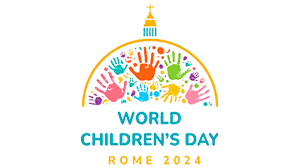KENYA: Catholics in Kenya to Reflect on Integrity and Justice for the Poor During Lenten Season

Sr. Jecinter Antoinette Okoth, FSSA
The Catholic Faithful in Kenya has been reminded as the Lenten period begins, to live a life of honesty guided by strong moral principles and be moved to fight for justice for the poor in the country.
In the Lenten campaign booklet developed and conceptualized by members of the Kenya Conference of Catholic Bishops (KCCB) through the Commission for Promotion of Integral Human Development (CPIHD), Catholic Justice and Peace Department, Church leaders have reminded the people of God that it is also a special time to remember that “we are mortal beings.”
The Chairman for KCCB’s CPIHD, Catholic Justice and Peace Department Rt. Rev. Bishop Oballa Owaa shared in the Lenten campaign booklet that, “A just nation is only possible if
the citizens are people of integrity (hence) the invitation, is therefore, to reflect on our journey of faith as the baptized people of God who should live with integrity to build a just nation.”
As moral beings called to a life of integrity, every individual has a responsibility to promote justice in society, especially for the poor lest we face consequences for neglecting such a demanding obligation.
“This Lenten season places responsibility at our doorstep: conducting ourselves with integrity. As moral beings, we have to go forth and fight for justice for the poor,” Bishop Oballa of Kenya’s Ngong Diocese underscored stressing that “Mother Church says there is only one choice to make over the poor; that is the preferential option for the poor.”
According to Catholic Social Teaching, the Prelate said the preferential option for the poor “means that we cannot see injustice towards the poor, leave them in their unbearable condition, and find reasons to justify our inaction. But our spiritual poverty should enkindle the inner fire to alleviate the suffering and misery of the poor.
The Prelate emphasized further that Christ in the scriptures illustrates the consequences of neglecting the poor and calls for justice giving reference to the parable of the rich man and a poor beggar named Lazarus (Luke 16:19-31). In the parable of the Good Samaritan he said, “Jesus emphasizes love and care for our neighbours, mainly those in need.”
Reflecting on the 2024 Lenten Campaign theme “Integrity for a Just Nation,” the KCCB’s CPIHD, Catholic Justice and Peace Department chairman noted that the scripture values integrity and uprightness saying, “In Psalm 25:21, the psalmist narrates that integrity is a cornerstone of church teaching, which signifies a genuine concern for others.”
At the same time, prophet Isaiah calls us “not only to passively acknowledge justice but to
actively seek it and defend the oppressed,2 (Is. 1:17), while Micah 6:8 emphasizes that our integrity “is not a solitary pursuit but must be coupled with a commitment to justice and a compassionate, humble approach to our relationship with God and others.
He highlighted seven dimensions of integrity that seem key in everyday life including “honesty and truthfulness; transparency; adherence to moral principles; accountability; humility; courage; and ethical decision-making and commitment to doing what is right.”
As the 2024 Lenten season occurs at a historical moment when the Universal Church is focused on strengthening itself as a Synodal Church, “Christians are called to support and prioritize the needs of the poor (as) the spirit of Synodality invites us to be in communion with one another and actively participate in the life of the Church,” Bishop Oballa said in the Lenten Booklet expounding that, “This needs to begin with the family embracing the mission of our Lord Jesus Christ.”
Through the 40-day journey from Ash Wednesday to Palm Sunday, the KCCB’s CPIHD, Catholic Justice and Peace Department has proposed various thematic areas for weekly reflection toward the realization of integrity for a just nation.
Week one focuses on the Sovereignty of the people as articulated in the Constitution where the prelate notes that “Improved government service delivery is a right of Kenyans.” Week two will delve into the Right to clean safe and adequate water, with a proper understanding of environmental justice, which extends the principles of justice to the relationship between humans and the environment, as we see our role in protecting the environment.
For the third week of the Lenten season, the reflection will be on the high cost of living coupled with high taxes which must be justified. Additionally, the Bishop said, “The government must be accountable and transparent in how it uses taxpayers’ money.” Besides the fourth week will focus on “the horrendous acts of sects that use the name of religion to commit religious extremist atrocities as we witnessed in Shakahola and other places.”
For the last week prior to Easter, the commission has proposed reflection on Social justice which Bishop Oballa says, “If conditions favourable to human living are lacking, many families will not cope with emerging threats to the very concept of family as God ordained it.”
These threats to the family the CPIHD, Catholic Justice and Peace Department chairman said, have increased with “developments in technology, and what Pope Francis calls the “dictatorship of relativism.”
The Bishop concluded his Lenten campaign message to the people of God saying, “May we find time to introspect, amend our ways, carry out acts of charity, and, beyond these, carry out our prophetic role to support the poor by reforming the social structures that create inequalities.” At the same time, “May the graces of the Lenten season make us better instruments of God’s call to go forth and be witnesses of social justice in our neighborhood, and in the country.”


